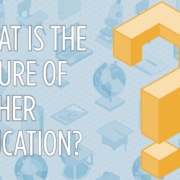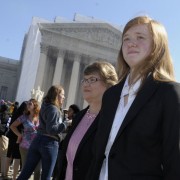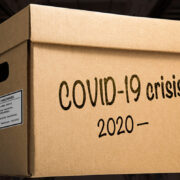When children are shielded from alternate and opposing perspectives, they grow up lacking the skills necessary to engage in this discourse, subverting the proper functioning of civil society.
Over the past decade, there has been a significant increase in the number of children in the U. S. being homeschooled. According to the National Center for Educational Statistics, in 1999, the number of homeschooled children nationally was 850,000; by 2011, this had increased to 1.77 million, or 3.4% of all children of school age. And by 2022, the percentage had risen to 5.22%.
Reasons parents indicate for homeschooling include having a safe environment (25%), poor academic quality (14.5%), and being able to infuse religious instruction into the curriculum (13%). The COVID pandemic appears to have influenced the significant increase in homeschooling over the past few years.
The trend toward homeschooling is problematic in a free society. In one sense, it indicates schools are failing at some level to adequately address our children’s educational and safety needs. Of course, there is nothing new in this observation. But with the growing number of school shootings, it makes sense for parents to try to do whatever they can to keep their children physically and mentally safe.
A deeply troubling issue, however, can be found in the desire to incorporate religious teaching into secular education—or to replace that secular education entirely. Christian-based, bible-centered homeschooling materials have long dominated the homeschool curriculum market in an environment where, as Harvard law professor Elizabeth Bartholet put it, homeschooling forms an “essentially unregulated regime.”
It is easy for parents to shelter their children from secular and accepted scientific ideas and prevent them from having the religious and moral ideas expressed at home questioned. This approach to education is unhealthy in a free society because it produces myopic adults who have never had their basic belief systems challenged directly or indirectly. Thus, they may be intolerant of and intransigent towards alternate viewpoints about right and wrong or the nature of religious truth and spiritual meaning.
Of course, many argue that it is the right of parents to educate their children as they see fit, as long as they meet the basic requirements stipulated by law. But is that really a right? It’s understandable when people question the quality of education their children receive in public schools; there are significant problems with and inequities in public schools, many of which are generated by how we fund public education through property taxes. These problems are more profound in some states, but it is reasonable to think that any public education system can be improved.
That said, it seems highly problematic to view it as a right for parents to teach their children anything they want, including ideas that are simply false, such as the Earth is only 6,000 years old.
Indeed, the desire of many parents to prevent their children from being exposed to ideas different from their own is problematic in a society that, at its foundation, is secular and not religious.
We live in a free society where multiple views will be expressed, debated, and acted upon. Children need to be educated in a way that gives them the tools to assess and respond to attitudes that differ from their own—even those that differ radically. This is true whether one is a Christian, a Muslim, a Buddhist, an atheist, or an adherent to any other philosophical, political, or religious perspective. All people need to be exposed to a variety of worldviews and ideas so that they can make intelligent decisions about what works best for them. And in a democratic society, we all need to be able to exchange ideas intelligently and rationally; a quality secular public education system is the basis for creating people who can do this.
For a free society to work well, it needs people who can engage in debate intelligently, who can understand opposing viewpoints rather than simply reacting to those viewpoints based on fixed beliefs, and who can contribute to public discourse about morality, religion, and education in a rational, tolerant way. Unfortunately, when children are shielded from alternate and opposing perspectives, they grow up lacking the skills necessary to engage in this discourse. This subverts the proper functioning of civil society.
And when those same children become adults and assume responsibilities as legislators and other leadership roles, they cannot often engage in one of the most important acts in a representative democracy like the U.S., namely, compromise.
Children should be educated in secular contexts in which they are exposed to various perspectives and religious traditions by studying culture and history. Theological education should be kept out of schools and limited to the religious institutions people belong to. It is also reasonable for parents concerned with religion to use their own beliefs to engage and discuss what children learn in school.
If parents don’t believe, for example, that evolutionary theory makes sense, they can explain why to their children. And if they are not “educated” at home, perhaps those children can also help their parents better understand what evolution means and what it does and does not challenge from a religious perspective.
Evolution is only one topic—many others could be raised. The issue is whether children should be shielded from ways of thinking that differ from their parents. For example, suppose we want a healthy society where people can engage in a civil and intelligent debate about making things work well. In that case, the answer to this question is unambiguously NO.
Parents have an obligation to society to raise children who can think critically, listen to opposing viewpoints, and rationally explore how those viewpoints might affect their perspectives. Why? Because we live in an open society, not a theocracy. Parents certainly have the right to be involved in their children’s education. Still, they do not have the right to keep their children ignorant of a world filled with various social, political, and moral ideas that may both challenge and support preconceived beliefs.
The rise of homeschooling to shield children from a secular education represents a threat to the basic principles of tolerance and freedom of expression at the foundation of American democracy. Homeschooling should be significantly curtailed. Although there are some cases, such as health reasons, where homeschooling may be the best option, it generally damages political freedom. Moreover, it produces adults who are often ill-equipped to function in a socially and intellectually diverse society.
_______
Cover graphic courtesy of Harvard Magazine.



